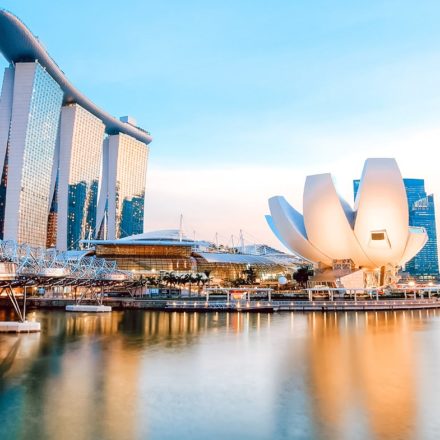On 27 November 2020, Hong Kong[1] and China Mainland signed the Supplemental Arrangement Concerning Mutual Enforcement of Arbitral Awards between the Mainland and Hong Kong (Supplemental Arrangement), which clarifies and refines the procedures for the recognition and enforcement of arbitral awards under the existing Arrangement Concerning Mutual Enforcement of Arbitral Awards (Arrangement). The Supplemental Arrangement further promotes judicial cooperation between the two jurisdictions for arbitration proceedings and better protects the legal interests of parties in cross-border deals.
While some new changes came into force immediately on 27 November 2020, other changes will commence when the relevant provisions of the Arbitration Ordinance (Cap. 609) have been enacted. On this point, the Arbitration (Amendment) Bill 2021 was gazetted on 19 February 2021 and will be introduced into the Legislative Council on 24 February 2021.
For more information on the Supplemental Arrangement, please refer to the official press release here.
Mutual enforcement of arbitral awards
Under the Arrangement, Hong Kong courts may enforce arbitral awards made pursuant to the Arbitration Law of the People’s Republic of China. In turn, the People’s Courts of the Mainland may enforce awards made pursuant to Hong Kong’s Arbitration Ordinance (Cap. 609).
Summary of changes
| Article number under the Supplemental Arrangement | Changes introduced and comment | Effective immediately? |
| Article 1 | The Supplemental Arrangement clarifies that the Arrangement procedures apply to “recognition” of arbitral awards, as opposed to only “enforcement” of arbitral awards and therefore brings the regime closer to wording adopted in the New York Convention.
Recognition and enforcement are separate concepts under the New York Convention. Recognition is the process whereby an award is converted to a domestic judgment. Enforcement refers to processes which seek to seize assets of the debtor. |
Yes |
| Article 2 | The Supplemental Arrangement expands the types of arbitral awards that may be enforced in China Mainland and Hong Kong.
In relation to China Mainland arbitral awards, the Arrangement only allows for the enforcement of awards made by arbitral authorities in China Mainland identified by the Legislative Affairs Office of the State Council. The Supplemental Arrangement removes this restriction and allows for the enforcement of any “arbitral awards rendered pursuant to the Arbitration Law of the People’s Republic of China (Arbitration Law)”. However, it will remain the case that only arbitrations administered by domestic institutions in China Mainland will be enforceable. This is because the Arbitration Law of the People’s currently only recognises administered arbitrations, and not ad hoc arbitrations. This modification will come into effect after relevant provisions in the Arbitration Ordinance (Cap. 609) have been enacted in Hong Kong. |
No |
| Article 3 | Under the current Arrangement, the time limit to apply for enforcement of arbitral awards in Hong Kong is 6 years;[2] whereas the time limit to do so in China Mainland is 2 years.[3] This remains unchanged under the Supplemental Arrangement.
The different limitation periods have in some cases caused out-of-time issues for parties who wish to apply for enforcement under the Arrangement, particularly when parallel enforcement applications are not allowed under the current Arrangement. For example, in CL v SCG[4], the Court of First Instance in Hong Kong found the applicant out-of-time for applying for leave to enforce an arbitral award in Hong Kong, after its initial enforcement application in China Mainland failed. The Supplemental Arrangement resolves this issue by allowing parties to make simultaneous applications to both the Hong Kong Court and Mainland China Court for enforcement of arbitral awards. This could become a useful enforcement strategy, especially against parties who have assets in multiple jurisdictions. Parallel enforcement applications, however, are only allowed if the total amount to be recovered from enforcing the arbitral award in both jurisdictions does not exceed the amount determined in the arbitral award. This modification will also come into effect after the relevant provisions in the Arbitration Ordinance (Cap. 609) have been enacted in Hong Kong. |
No |
| Article 4 | The Supplemental Arrangement further enhances judicial support for arbitration proceedings in both China Mainland and Hong Kong.
Under the Supplemental Arrangement, the relevant court can, before or after accepting an enforcement application, impose preservation or mandatory measures pursuant to the law of the place of enforcement. This new development interacts with the Arrangement Concerning Mutual Assistance in Court-ordered Interim Measures in Aid of Arbitral Proceedings (i.e. the Interim Measures Arrangement for which see our alerts, linked below)[5] and better protects the legal interests for parties who are doing cross-border business with Mainland entities especially when asset dissipation is a concern, and vice versa. |
Yes |
Comment
In the past two years, the Hong Kong arbitration framework has continued to evolve so as to ensure more efficient and effective dispute resolution. For example, the establishment of the New Interim Measures Arrangement, implementation of the Pilot Scheme on Facilitation for Persons Participating in Arbitral Proceedings and issuance of virtual hearing guidelines by the Hong Kong International Arbitration Centre (HKIAC), the latter two of which are intended to ensure that Hong Kong remains an attractive arbitration seat in the midst of the COVID-19 pandemic.
The introduction of Supplemental Agreement builds upon the current Arrangement by providing a comprehensive framework for the recognition and enforcement of arbitral awards between Hong Kong and China Mainland. It is available only to parties choosing Hong Kong as an arbitration seat.
[1] Hong Kong Special Administrative Region of the People’s Republic of China.
[2] See s4(1)(c) of the Limitation Ordinance (Cap. 347).
[3] See Article 215 of the Civil Procedure Law.
[4] CL v SCG [2019] HKCFI 398.
[5] “New interim measure enforcement arrangement between Hong Kong and Mainland China gives Hong Kong arbitrations an enforcement advantage in the Mainland”, 4 April 2019;
“Unique advantage when selecting HKSAR or China Mainland Arbitration: new interim measures Arrangement comes into effect on 1 October 2019”, 26 September 2019;
“First Order issued under Interim Measures Arrangement between China Mainland and Hong Kong SAR”, 11 October 2019; and
“Update on the exclusive benefit when selecting Hong Kong arbitration: asset, evidence and conduct preservation in China Mainland. How is it working?”, 15 September 2020.








